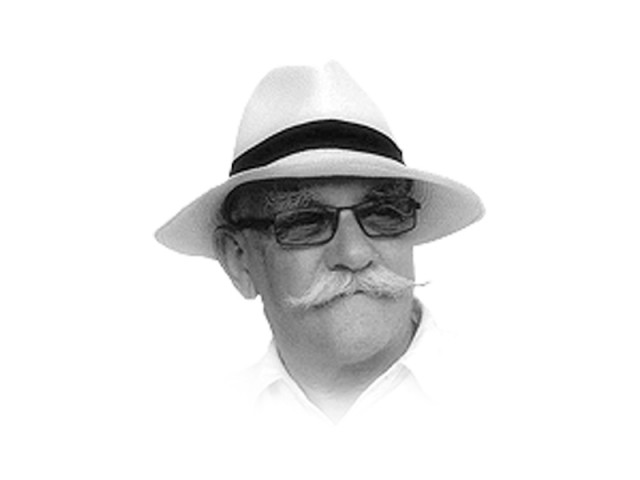Living dangerously
Drivers are not just wilfully reckless — they care little or nothing for lives of their passengers either.

The writer is editorial consultant at The Express Tribune, news junkie, bibliophile, cat lover and occasional cyclist
Three times as many people are killed on the roads every year as are killed by terrorist bombs or bullets. Multiple-fatality crashes are common, make the headlines for a day, are the subject of a stalled inquiry and quickly fade from view. Drivers are not just wilfully reckless of their own lives — they care little or nothing for the lives of their passengers either. Nor the lives of pedestrians.
A recent accident in which 41 people died when a bus was sliced laterally by a towed trailer gave pause for thought, followed by a little research. It was a report of a report printed in a Western newspaper but authored by a serving Pakistani policeman that found the missing pieces for me. The pieces that tell us just why it is that road safety — or any other sort of safety for that matter — is so low on the list of national priorities.
It was hiding in plain view all the time, the elephant in the room that is miraculously invisible. An elephant called ‘Fatalism’.
The findings of the report were disturbing — at least to me. The research seemed sound, conducted in three large cities of Pakistan, and the results clear and conclusive. There is a profound fatalism that sits in the minds of a majority of those that use the roads, be they drivers, passengers or hauliers. There is a clear correlation between fatalistic cultural beliefs and risky road use. The majority of those interviewed believed that a person’s time of death is fixed and cannot be avoided. There is an overriding belief that there is no point in taking steps to avoid death because it will come at the appointed time no matter what one does to try and avoid it.
Public service messages about risk avoidance lack popular credibility, and that is not just among road users but crucially among those who are responsible for creating and then enforcing safety regulations.
And then there was a wider realisation. It was not just on the roads that there is reckless and fatalistic behaviour, it is all around us. An almost complete absence of a culture of risk-avoidance and personal safety.
Take a look in virtually any kitchen. That loose handle on the frying pan. Glance out of the window at the exposed wiring hanging from the electricity poles. For that matter, consider briefly the two wires stuck into the socket or plug board on the floor — in just about the right place for a crawling rug rat to poke an inquisitive finger. FSSSSST! Those precariously loaded wagons that challenge the laws of gravity with gravity often winning the contest. I once saw a family of four crushed to death in Khanpur as a truck toppled on their motorbike.
Mr Jumbo Fatalism is all around, and the roads are just a part of the picture. Industrial accidents that involve fire or building collapse are often the product of a failure of safety culture, and how many of you...yes you...work in multi-storey offices have had a fire drill and have had a practice evacuation in the recent past? Or ever? Any idea where the nearest fire extinguisher is or what is the most appropriate way of dousing an electrical fire — and here is a clue...don’t use water.
There are no protests about any of this, nor any failure of expectation either because there was no expectation of living and working or cooking the dinner in an environment that has safety factored in.
Kismet. It is written. Tell that to the motorcyclist lying as I once saw at the side of the road with the upper part of his cranium strangely absent. As was any sign of a helmet. Or the woman whose neck was broken as her scarf wrapped itself round the rear wheel of the motorbike she was a passenger on.
Terrorists take a toll, but it is fatalism that is the real killer.
Published in The Express Tribune, April 24th, 2014.
Like Opinion & Editorial on Facebook, follow @ETOpEd on Twitter to receive all updates on all our daily pieces.
















COMMENTS
Comments are moderated and generally will be posted if they are on-topic and not abusive.
For more information, please see our Comments FAQ